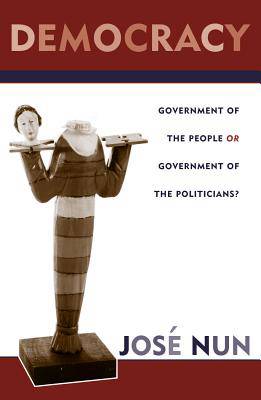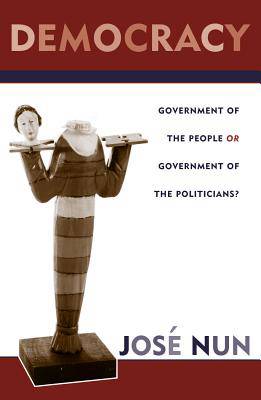
- Afhalen na 1 uur in een winkel met voorraad
- Gratis thuislevering in België vanaf € 30
- Ruim aanbod met 7 miljoen producten
- Afhalen na 1 uur in een winkel met voorraad
- Gratis thuislevering in België vanaf € 30
- Ruim aanbod met 7 miljoen producten
Zoeken
Omschrijving
One hundred and fifty years ago, Abraham Lincoln stressed the pressing need for a new definition of "freedom." Today, with 85 of some 190 countries claiming to be representative democracies, José Nun makes an equally compelling case for "democracy." In emerging democracies throughout much of the developing world, the need is especially urgent, as nascent debates about democracy are modified by such descriptions as delegative, transitional, incomplete, low-intensity, relative, uncertain, or even authoritarian. In accessible and engaging style, Nun provides a comprehensive analysis of the theory and practice of democracy from ancient Greece to contemporary Latin America. The author's authoritative historical and comparative discussion of democracy is combined with his own evaluation of the conditions and possibilities for the development of genuinely democratic societies in our time, in Latin America and throughout the world. The author identifies the preconditions of a democratic regime, the links between citizenship construction and social rights, the centrality of work for the promotion of equality and freedom, and the current democratic deficits both in core and peripheral countries. All readers will benefit from Nun's insightful distinction between two visions of democracy--government of the people or government of the politicians--and its profound consequences.
Specificaties
Betrokkenen
- Auteur(s):
- Uitgeverij:
Inhoud
- Aantal bladzijden:
- 128
- Taal:
- Engels
- Reeks:
Eigenschappen
- Productcode (EAN):
- 9780742520394
- Verschijningsdatum:
- 1/08/2003
- Uitvoering:
- Hardcover
- Formaat:
- Genaaid
- Afmetingen:
- 146 mm x 249 mm
- Gewicht:
- 344 g

Alleen bij Standaard Boekhandel
+ 209 punten op je klantenkaart van Standaard Boekhandel
Beoordelingen
We publiceren alleen reviews die voldoen aan de voorwaarden voor reviews. Bekijk onze voorwaarden voor reviews.











